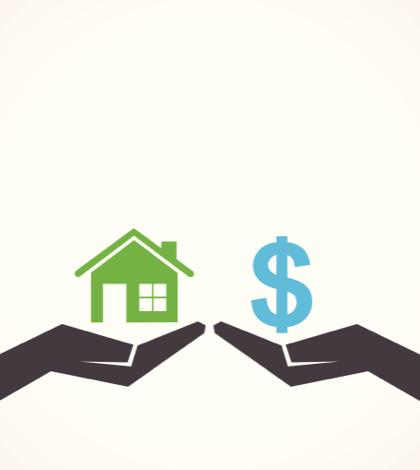Rents are up nationally and locally, as some potential buyers take a closer look at the downside of owning a home. Some experts say the trend, a byproduct of the recession, is likely to be around for awhile.
Is owning a home, better known as the American Dream, slowly going the way of the dinosaur?
Probably not, but it definitely appears to be on hiatus, another casualty of the Great Recession, and it might not come back any time soon.
Single-family homes sales are down, both locally and nationally. Because home prices are also continuing to rise, the trend towards renting is probably not going away, say several local housing experts.
“It started a few years ago and we’re starting to see more of it,” said Steve Orban, president of the Inland Valley Association of Realtors, referring to increased renting in the Inland housing market. “Mostly it’s because prices have gone up and a lot of people can’t afford to buy a house, but there are other factors. And there’s no way of knowing when it will end.”
Single-family home sales are definitely on the decline, both locally and nationally, a sure sign that more people are renting.
During July, the most recent numbers available, year-over-year home sales were down 10.3 percent in Riverside County and 9.9 percent in San Bernardino County, according to DataQuick in San Diego, which issues monthly reports on the Southern California housing market.
Sales of single-family homes in the lnland region have been dropping all year: except for San Bernardino County in February, when sales rose a paltry 0.9 percent compared with one year before, both counties have registered a drop in sales every month through August, according to DataQuick.
In Southern California – the Inland Empire plus Los Angeles, Orange, San Diego and Ventura counties – home sales were down 12.4 percent year-over-year in July and have declined every month compared with the previous year since last October, DataQuick found.
Nationally, home sales were down 4.9 percent during the first half of this year compared with the first six months of 2013, according to the U.S. Department of Commerce.
Fallout from the real estate bust, mounting student debt and the steep increase in prices all contributed to the decline, which could have broad implications for the economic recovery. Housing construction typically accounts for about five percent of the U.S. economy, according to the National Association of Homebuilders.
As home sales drop, U.S residents are increasingly turning to rental units, either apartments or single-family homes, for their housing.
At the start of 2013, 43 percent of all U.S. households were rented, up from 35 percent in 2012 and 31 percent a decade ago, the recent Joint Center for Housing Studies of Harvard University found.
Depending on immigration trends, the number of rental households in the United States is expected to rise between four and 4.7 million between 2013 and 2023, according to the Harvard study.
A number of factors have contributed to that trend, starting with the wave of foreclosures and sustained unemployment that swept the country in 2008. That not only kept would-be buyers from purchasing houses, for a lot of people it highlighted the potential dangers associated with owning a house.
Renting, on the other hand, made it more convenient for people to move around, made it easier for them to find housing that fit their budget and freed them from the burden of having to maintain a home.
“No one has any hard numbers, but the trend toward renting is definitely happening in the Inland Empire,” said Steve Johnson, who recently started a housing consulting business after leaving the Riverside office of Metrostudy, which provides housing data to private public clients throughout the United States. “It started about 18 months ago, and I expect it to keep growing.”
More people, especially young people, are taking the attitude that they don’t need to own a home and that it’s easier to rent, according to Johnson
“I’ve been noticing a different mind-set about real-estate,” he said. “They aren’t making it the major investment in their lives, and I think that’s a result of the recession. They don’t have a lot of confidence in the market, and until they have more confidence in their future they won’t be motivated to buy a house.”
The biggest change is happening among potential buyers between the ages of 28 to 34, the age group in which people used to buy their first home. Without a lot of young, first-time buyers entering the market, the housing industry loses some of its velocity, Johnson said.
“A lot of people in that age group aren’t in their career job yet, they don’t expect to be in the job they have for very long, so they’re reluctant to buy a house,” Johnson said. “It didn’t used to be like that, but it is now, and it’s messing with the buyer pool.”
Renting may be up for now, but the goal of owning a home isn’t going away for most U.S. residents, said Randall Lewis, executive vice president of The Lewis Group of Cos. in Upland.
“The American Dream isn’t going anywhere,” said Lewis, whose company develops mixed-use communities, shopping centers, and residential subdivisions in California and Nevada. “People would still rather buy a house than have to pay rent for years.”
Most people who rent are experiencing a transition in their lives, like a divorce or a job change, or they’re waiting to get a better deal on a house. Either way, they don’t usually view renting as permanent, Lewis said.
“The most important thing in the housing market today is that we don’t make the same mistakes that we made 10 years ago,” said Lewis, whose business was once of the largest single-family homebuilders in Southern California. “That’s when a lot of people who couldn’t afford to buy a house bought one, and that’s what created the housing bubble. As for renting or owning, they can co-exist. There are healthy markets for both right now.”
 IE Business Daily Business news for the Inland Empire.
IE Business Daily Business news for the Inland Empire.


